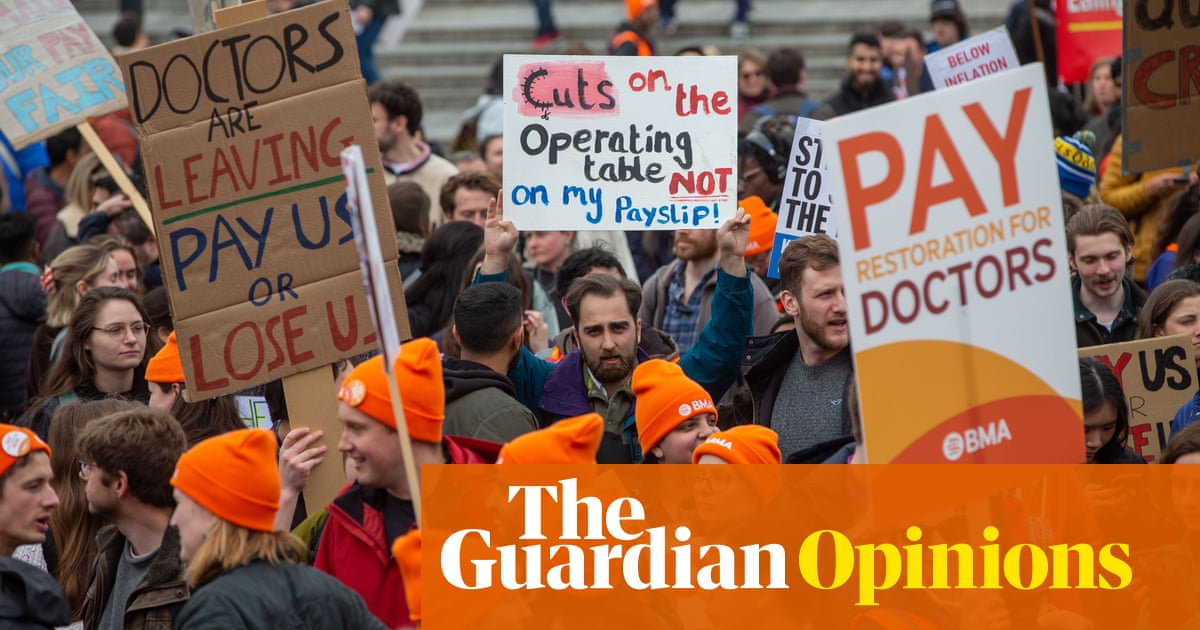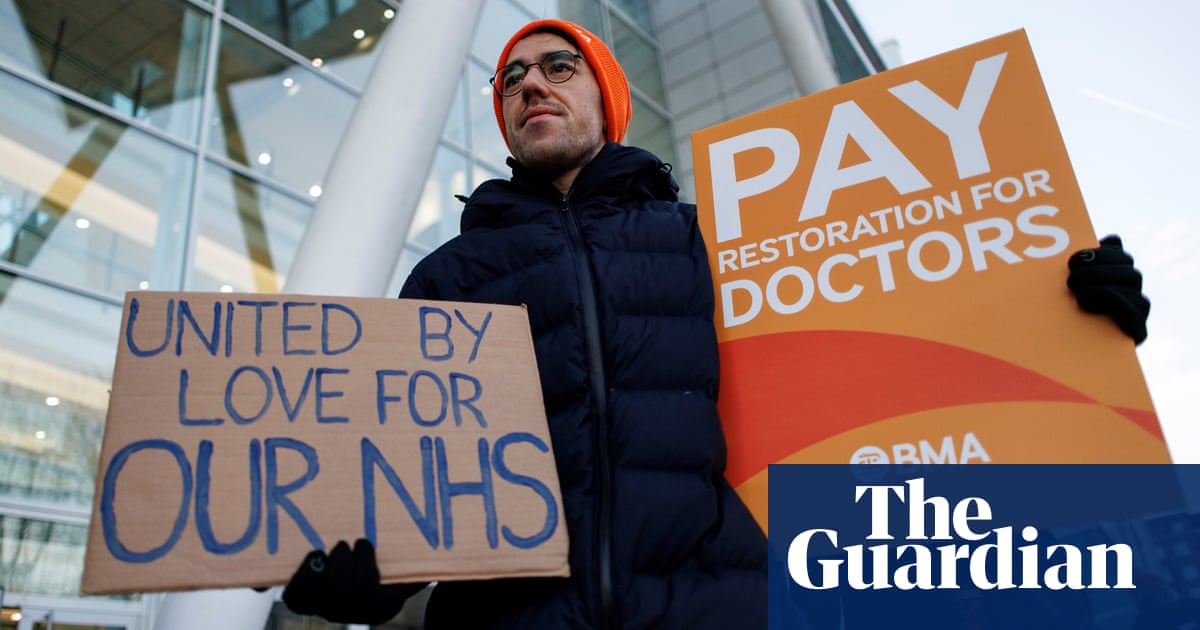
Four in 10 junior doctors in the UK plan to leave if they can find another job. In emergency medicine we all know colleagues who are talented and dedicated, the sort of doctor who you’d want to treat your nan – and who are now working in Australia.
I’m striking because in emergency medicine, things have become so unsafe it is not tenable to continue. One of the reasons is staff shortages, because doctors aren’t paid enough.
I’ve been a “junior” doctor for 10 years. At my stage of training, a lot of what we’re doing is just firefighting. In those situations, you can’t give good medical care: all you can do is try to stop people from dying in the waiting room.
When it’s like that, you can’t take a break. I’ve worked shifts where it doesn’t feel safe to even nip to the toilet. It takes a physical toll on you to work for 10 or more hours without sitting down or eating and drinking. And then when you go home, you don’t sleep well because you’re aware of all the things you weren’t able to do very well. Then you go back to your next shift even more tired – and you make more mistakes.
Staff retention is down to both pay and conditions. Improving conditions is complicated, because we’re so intertwined with other parts of health and social care. Our main issue is that people come into A&E quicker than we can get them out – we don’t have any free beds on the ward, because wards can’t discharge to social care. To improve pay, however, the answer is simple: we must go on strike.
Most junior doctors have really struggled this winter. I’ve spoken to some who have really had to think about whether they can afford to put the heating on. I don’t think that that helps them be the best doctors they can be. People are coming into work worried about money, worried about keeping warm: they’re not going to be making excellent decisions.
Overall, our pay has been eroded. We don’t do a less difficult job than we did 10 years ago, so falling wages must be purely down to government ideology. Doctors vote with their feet – and won’t stick around if they can find a more sustainable life elsewhere.
We know that the strike will cause disruption and lead to operations being cancelled. There will be a short-term increase to waits – we know how distressing that is for patients.
But if we don’t do something now, nothing is going to change – and frail, elderly patients will still be lying around for 12, 24 or 36 hours in our corridors. If we don’t push back, that’s going to carry on in the long term.
We need the government to recognise the crisis that’s happening in our healthcare system; recognise that junior doctors are instrumental to fixing that crisis; and pay us what we’re worth.
The writer is an A&E junior doctor in Manchester. As told to Clea Skopeliti











